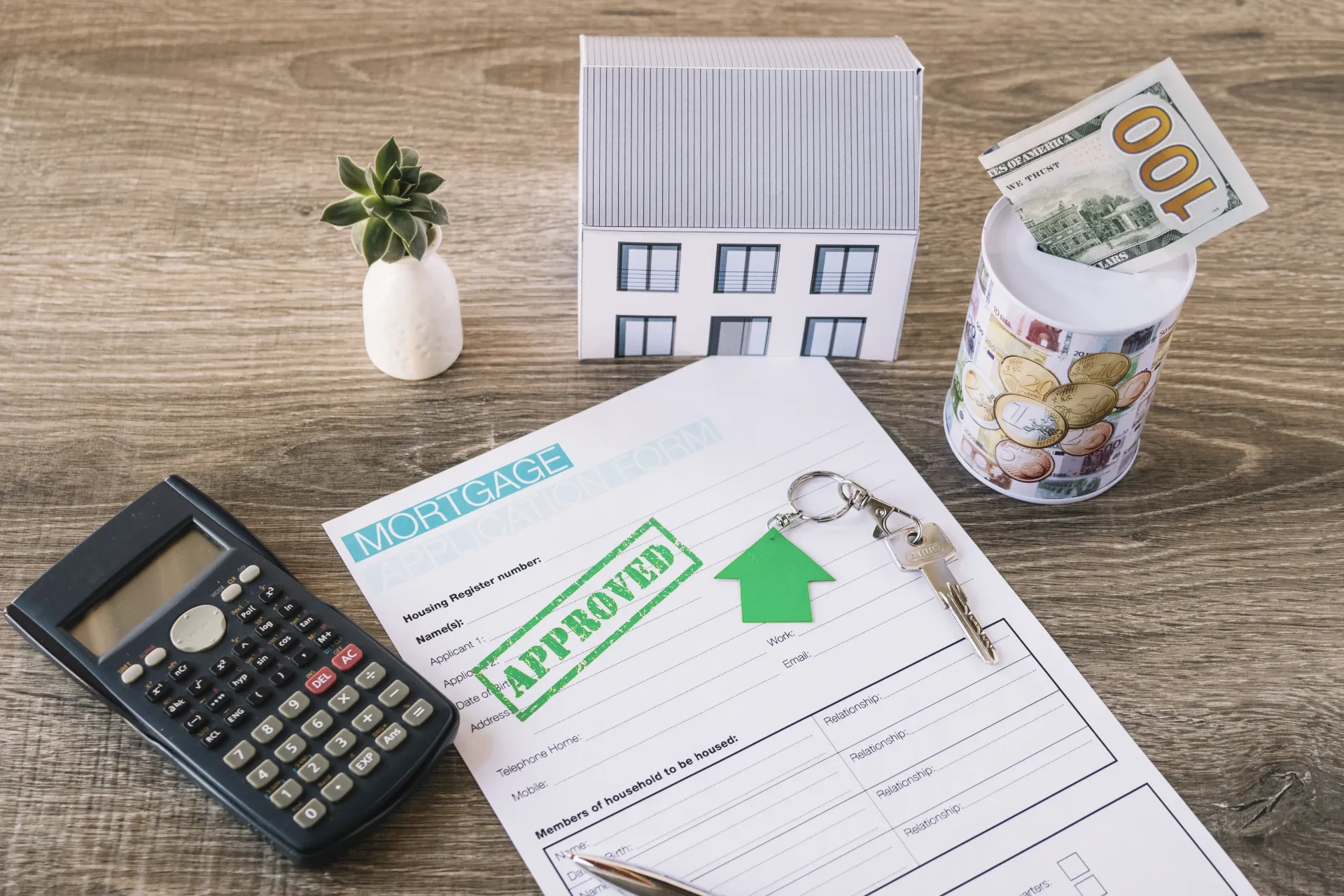Build Wealth Faster: How Fix and Flip Loans in San Diego Empower Smart Real Estate Investors
Understanding fix and flip loans helps San Diego real estate investors accelerate wealth building through strategic property renovations. These specialized financing solutions provide capital, flexibility, and speed that traditional mortgages cannot match for investment properties.

| Phase | Timeline | Key Activities |
|---|---|---|
| Property Identification | Ongoing | Searching listings, networking, analyzing deals |
| Loan Application | 1 to 3 days | Submitting documentation, property analysis |
| Underwriting & Approval | 3 to 7 days | Lender evaluation, property appraisal |
| Closing | 5 to 14 days | Final documentation, funding, property transfer |
| Renovation | 30 to 90 days | Construction work, inspections, improvements |
| Marketing & Sale | 30 to 60 days | Listing, showings, negotiations, closing |
Renovation Strategies That Maximize Returns
Strategic improvement selections determine profitability. Understanding which renovations provide best returns focuses budgets on value adding improvements. Strategic improvement selections determine profitability. Understanding which renovations provide best returns focuses budgets on value adding improvements.
Kitchen Updates
Modern kitchens drive buyer interest and pricing premiums making comprehensive kitchen renovations among highest return investments.
Bathroom Remodels
Updated bathrooms significantly impact buyer perceptions with relatively modest investments compared to full room additions.
Curb Appeal Enhancement
Landscaping, exterior paint, and entry improvements create critical first impressions influencing buyer interest and offer prices.
Open Floor Plans
Removing non structural walls creates modern open layouts highly desirable to San Diego buyers willing to pay premiums.
Energy Efficiency
Solar panels, new windows, and efficient HVAC systems appeal to environmentally conscious San Diego buyers and reduce utility costs.
Neutral Finishes
Contemporary neutral colors and finishes appeal to broadest buyer pools maximizing marketability and sale speed.
Common Mistakes to Avoid
Recognizing frequent errors helps San Diego investors protect profits and build successful track records. Learning from others' mistakes accelerates success.
Over-improving Properties: Installing luxury finishes exceeding neighborhood norms wastes capital that doesn't translate to proportional value increases.
Underestimating Timelines: Overly optimistic schedules lead to extended holding costs and additional financing fees eroding profit margins.
Inadequate Contingencies: Failing to budget for unexpected issues discovered during renovation leaves investors scrambling for additional capital mid project.
Poor Contractor Selection: Hiring cheap unqualified contractors results in poor quality work, delays, and costly repairs that damage profitability.
Ignoring Permits: Skipping required permits creates legal issues, safety hazards, and problems during sale when buyers discover unpermitted work.
Emotional Decisions: Making design choices based on personal preferences rather than market data leads to renovations buyers don't value appropriately.
Risk Management Strategies
Protecting investments requires proactive risk management. Understanding and mitigating common risks preserves capital and ensures consistent profitability.
Thorough Inspections: Comprehensive pre purchase inspections identify hidden issues preventing costly surprises discovered after closing.
Conservative ARV Estimates: Using conservative After Repair Value projections protects against market fluctuations and ensures adequate profit margins.
Multiple Exit Strategies: Having backup plans including rental conversion or longer hold periods protects against unexpected market changes.
Insurance Coverage: Maintaining comprehensive property, liability, and builders risk insurance protects against property damage, injuries, and construction issues.
Legal Entity Structure: Operating through LLCs or corporations separates personal assets from business liability protecting wealth from investment risks.
Reserve Maintenance: Keeping adequate cash reserves covers unexpected expenses without jeopardizing projects or requiring emergency high cost financing.
Building Lender Relationships
Strong lender relationships provide competitive advantages including better terms, faster processing, and access to capital for multiple simultaneous projects.
Performance History: Successfully completing projects and repaying loans establishes track records that qualify investors for improved terms on future financing.
Communication Consistency: Regular updates even when not actively borrowing keeps investors top of mind when lenders have capital to deploy.
Prompt Payments: Making all loan payments on time or early demonstrates reliability encouraging lenders to approve future applications quickly.
Transparency: Honest communication about challenges or changes maintains trust even when projects face unexpected obstacles or delays.
Volume Commitment: Investors completing multiple deals annually often negotiate better rates and terms through ongoing business relationships.
Referral Networks: Introducing other qualified investors to lenders builds goodwill that translates to preferential treatment and flexible accommodations.
Tax Implications and Benefits
Understanding tax treatment of fix and flip profits helps investors maximize after tax returns. Strategic planning optimizes overall wealth building.
Ordinary Income Treatment: Fix and flip profits typically qualify as ordinary business income taxed at regular rates rather than lower capital gains rates.
Deductible Expenses: Interest payments, property taxes, insurance, utilities, and business expenses reduce taxable income lowering overall tax burdens.
Entity Selection: Choosing appropriate business structures (LLC, S Corp, partnership) optimizes tax treatment based on individual circumstances and income levels.
Depreciation Opportunities: Holding properties slightly longer as rentals before selling may allow depreciation deductions and potentially better tax treatment.
1031 Exchange Considerations: While traditional 1031 exchanges don't apply to fix and flip properties, strategic approaches may provide similar benefits.
Professional Guidance: Working with tax professionals experienced in real estate investing ensures optimal tax treatment and compliance with changing regulations.
Scaling Your Investment Business
Fix and flip loans enable portfolio growth and business scaling. Strategic expansion builds substantial wealth through systematic property investing.
Project Pipeline Development: Maintaining consistent deal flow with multiple properties at various stages creates steady income streams and growth momentum.
Team Building: Assembling reliable contractor networks, real estate agents, and service providers enables simultaneous project management.
Systems Implementation: Standardized processes for property evaluation, renovation, and sale increase efficiency as project volume grows.
Capital Relationships: Establishing multiple lender relationships provides backup funding sources and ensures capital availability for multiple concurrent projects.
Market Expansion: Success in one San Diego neighborhood provides foundation for expanding into additional areas diversifying risk and opportunity.
Experience Leverage: Track records of successful projects qualify investors for larger loans, better terms, and institutional capital sources.
Alternative Strategies Using Fix and Flip Loans
Creative investors use fix and flip financing for strategies beyond traditional property flipping. Understanding alternatives expands opportunity recognition.
Buy, Renovate, Rent, Refinance (BRRRR)
Using fix and flip loans for purchase and renovation then refinancing into long term financing retains properties as rentals.
Wholesale Assignments
Securing properties with financing commitments then assigning contracts to other investors for assignment fees.
Live In Flips
Purchasing properties with fix and flip loans, making owner occupant improvements, then converting to traditional financing while building equity.
New Construction
Using ground up construction loans for spec home construction on purchased lots then selling completed homes.
Commercial Conversions
Renovating commercial properties to residential or mixed use through creative financing and development strategies.
Vacation Rentals
Renovating properties into short term vacation rentals using fix and flip loans then refinancing into investment property mortgages.
Expert Tips and Local Insights
"Fix and flip financing has transformed how investors build wealth in San Diego," explains a local real estate investment advisor. "The key is understanding that these loans aren't just about borrowing money.
They're strategic tools that let you control more assets, move quickly on opportunities, and scale operations. Successful San Diego investors focus on neighborhoods with strong fundamentals, renovation scopes matching buyer expectations, and conservative profit projections that account for our competitive market. With proper financing and execution, consistent profits build substantial wealth much faster than traditional investment approaches."
Whether you're targeting properties in North Park, Pacific Beach, La Mesa, or anywhere throughout San Diego County, fix and flip loans provide capital and flexibility that accelerate wealth building when combined with market knowledge and strategic execution.
Due Diligence Best Practices
Thorough property evaluation before purchase prevents costly mistakes. Comprehensive due diligence protects investments and ensures profitable outcomes.
Comparative Market Analysis: Research recent sales of similar properties establishing accurate ARV projections and renovation scope requirements.
Professional Inspections: Hire experienced inspectors evaluating structural, mechanical, electrical, and plumbing systems identifying all needed repairs.
Permit Research: Verify existing permits for previous work and identify any unpermitted additions or modifications requiring resolution.
Title Review: Examine title reports for liens, easements, or restrictions that could complicate renovations or reduce property value.
Contractor Estimates: Obtain detailed bids from licensed contractors before purchase ensuring renovation budgets reflect actual construction costs.
Neighborhood Analysis: Evaluate area trends, school ratings, crime statistics, and development plans affecting future property values and buyer demand.
Working with Real Estate Professionals
Building strong professional networks accelerates deal flow and ensures quality execution. Strategic relationships contribute significantly to investing success.
Real Estate Agents: Agents specializing in investment properties provide early access to listings and market intelligence before properties reach broader markets.
Contractors: Reliable general contractors with strong track records ensure quality renovations completed on schedule and within budgets.
Inspectors: Thorough home inspectors identify all property issues enabling accurate renovation budgets and preventing expensive surprises.
Appraisers: Professional appraisers provide accurate property valuations essential for loan approval and profit projection accuracy.
Attorneys: Real estate attorneys review contracts, handle closings, and advise on legal structures protecting investor interests throughout transactions.
Insurance Agents: Experienced agents provide appropriate coverage for renovation projects protecting against property damage and liability exposures.
Long Term Wealth Building Strategies
Fix and flip investing serves as foundation for comprehensive wealth building. Strategic planning creates lasting financial success beyond individual projects.
Profit Reinvestment: Systematically reinvesting project profits into additional properties accelerates portfolio growth and wealth accumulation.
Portfolio Diversification: Combining fix and flip projects with rentals, commercial properties, and other investments creates balanced portfolios reducing overall risk.
Equity Accumulation: Retaining select properties as rentals after renovation builds long term equity and passive income streams.
Market Cycle Navigation: Understanding market cycles allows strategic timing of aggressive flipping versus conservative holding strategies.
Knowledge Investment: Continuous education through courses, seminars, and networking improves skills and identifies emerging opportunities.
Business Systems: Developing replicable systems and processes enables scaling beyond personal time limitations through team delegation.
Conclusion
Understanding how fix and flip loans empower San Diego real estate investors helps build wealth faster through strategic property investments. These specialized financing solutions provide capital access, transaction speed, and portfolio scaling capabilities that accelerate wealth building beyond traditional investment approaches.
If you're ready to leverage fix and flip financing for San Diego real estate investments that build substantial wealth, research qualified lenders and begin analyzing potential properties today. Strategic financing combined with market knowledge and disciplined execution creates powerful wealth building momentum.
Key Takeaways
- Fix and flip loans provide short term financing for property purchases and renovations with quick closings
- Asset based lending focuses on property value and profit potential rather than personal income alone
- San Diego's strong appreciation and high demand create exceptional opportunities for strategic investors
- Interest rates of 8 to 15% and 10 to 25% down payments are typical for fix and flip financing
- Successful projects target 15 to 20% profit margins after all costs including financing, renovation, and sale expenses
- Strategic renovation focusing on kitchens, bathrooms, and curb appeal maximizes returns in San Diego market.
Frequently Asked Questions
What credit score do I need for fix and flip loans in San Diego?
Most fix and flip lenders in San Diego accept credit scores of 600 to 650, significantly lower than conventional mortgage requirements. However, higher credit scores typically qualify for better interest rates and terms. First time investors with lower scores may need larger down payments or more substantial reserves to secure financing.
How much money do I need to start flipping houses in San Diego?
Minimum capital requirements typically range $30,000 to $75,000 including down payment (10 to 25% of purchase price), closing costs, and cash reserves. San Diego's higher property values mean larger absolute amounts compared to other markets. Many investors start with less expensive properties or partner with others to reduce individual capital requirements.
How long does it take to close on a fix and flip loan?
Fix and flip loans typically close in 7 to 14 days compared to 30 to 45 days for traditional mortgages. Some hard money lenders close in as few as 5 to 7 days for straightforward transactions. Speed depends on documentation completeness, property appraisal scheduling, and lender's current volume.
Can I use fix and flip loans for my first investment property?
Yes, many lenders work with first time investors though requirements are typically stricter including higher down payments (20 to 25%), larger cash reserves, and sometimes requiring experienced contractors or partners. Some lenders specialize in helping new investors begin their real estate careers.
What happens if my property doesn't sell within the loan term?
Most lenders offer loan extensions for additional fees, typically 1 to 2% of outstanding balance per additional month or quarter. Alternative exit strategies include converting to rental property, refinancing into traditional mortgage, or reducing sale price. Planning for potential extensions during initial budgeting protects against this scenario.
Are fix and flip profits taxed differently than regular income?
Fix and flip profits are typically taxed as ordinary business income at regular tax rates rather than lower long term capital gains rates. However, business expenses including interest, property taxes, insurance, and operating costs are deductible. Working with tax professionals experienced in real estate investing optimizes tax treatment and ensures compliance.










